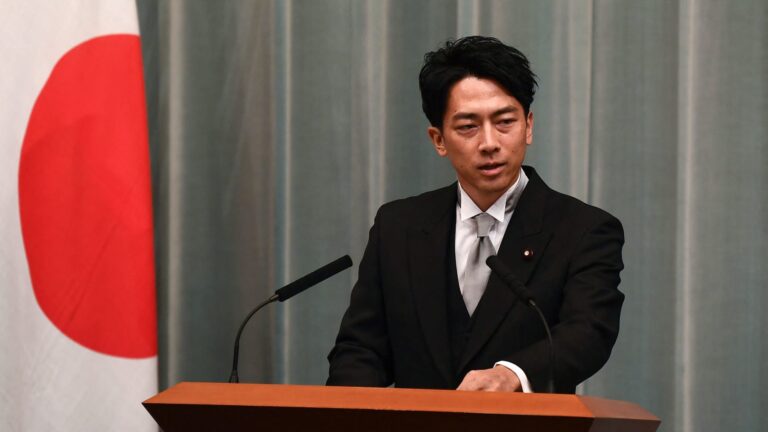Environment Minister Shinjiro Koizumi delivered a speech at a press conference at the Prime Minister’s Office in Tokyo on September 17, 2020.
Charlie Triboreaux | AFP | Getty Images
Japan’s ruling Liberal Democratic Party is scheduled to elect a new president and ultimately the next prime minister in September.
With nearly a dozen candidates in the race, many analysts have described it as competitive and unpredictable. The unusually wide-ranging and crowded field is the result of an attempt to eliminate “factional politics” within the party, but factional ties appear to remain strong. Factions are small, organized groups within the LDP that have their own leadership and policy goals.
One of the leading candidates is Shinjiro Koizumi, who is scheduled to hold a press conference on September 6th to announce his candidacy.
The 43-year-old son of former Prime Minister Junichiro Koizumi, Kobayashi is expected to be the youngest candidate in the upcoming election. Along with Takayuki Kobayashi, 49, who has already announced his candidacy, the two are seen as candidates to lead a generational change in the party’s election.
Koizumi, a former environment minister, is known as a champion of renewable energy, made headlines for going surfing in Fukushima prefecture to ease concerns about the safety of the water after the release of treated wastewater, and for being the first sitting Japanese minister to take parental leave.
Nishimura Rintaro, a Japan-based analyst at Asia Group, said while the public is waiting for the official announcement of the candidate, for now Koizumi appears to be the closest thing to a front-runner.
“His father was the popular reformist populist LDP president and prime minister and he is an attractive candidate, especially in the current climate, as he is scandal-free and seen as fresh compared to other candidates,” he said.
Nishimura said Koizumi was likely to win votes from both LDP Diet members and party members across Japan.
To be the winner of an LDP election, a candidate must receive a majority of the votes. If no candidate receives a majority, a runoff election is held between the top two vote-getters.
“Now, with LDP lawmakers looking ahead to next year’s general election, young lawmakers, especially those with short tenures, are worried about survival and whether they can hold on to their seats,” Nishimura said.
“I don’t think there is a safe option this time. It’s all about which candidate can win the general election, and if that happens, someone as popular as Koizumi will naturally be one of the leading candidates.”
Koizumi has also emerged as one of the most popular candidates among the public. A poll conducted by the local newspaper Asahi Shimbun put him tied with Ishiba Shigeru nationwide, with 21 percent support each. But the poll also showed Koizumi had the highest approval rating among LDP supporters, at 28 percent, compared with Ishiba’s 23 percent.
However, questions remain about Prime Minister Koizumi’s level of experience and policy vision.
Tobias Harris, founder of the consulting firm Japan Foresight, said in a recent online post that Koizumi “has great potential to fundamentally change the campaign” but that he has a weak track record: He has never been a party leader or a cabinet chief.
“While he is a skilled campaigner and has worked on a range of issues, he has limited experience in foreign policy, which could be a particular weakness in the LDP leadership race, which is already being influenced by the US presidential election and the possibility of a second term for Trump,” Harris wrote.
Little is also known about his economic policies.
“As far as I know, Prime Minister Koizumi has not commented on the Bank of Japan’s policy normalization,” Harris told CNBC.
“We can make certain inferences. He is concerned about fiscal policy and the budget deficit. [former defense chief] “There are voices from critics of Abenomics, such as Shigeru Ishiba, but we don’t know for sure. Overall, the party tends to favor normalization, except on the right wing.”
Nicholas Smith, Japan strategist at CLSA, said it was too early to assume the prime ministerial role for Koizumi.
“It’s all about experience. He’s been elected five times. That’s the minimum level that’s acceptable,” he said.
“Plus he had one small cabinet post in charge of nuclear safety, which was not a senior role. People will say he can’t be prime minister without doing other jobs.”
The LDP presidential election will be held on September 27th.


